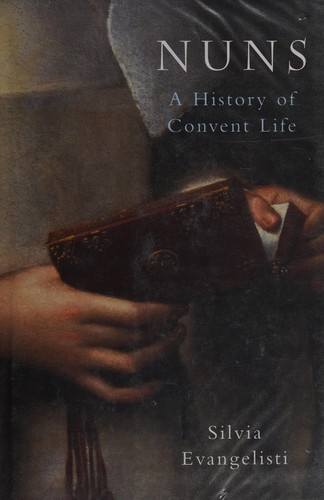Kantolope wants to read The Fire Next Time by James Baldwin

The Fire Next Time by James Baldwin
A national bestseller when it first appeared in 1963, The Fire Next Time galvanized the nation and gave passionate voice …
Love me books, love me FOSS, love me socialism, love me tea. Simple as.
This link opens in a pop-up window

A national bestseller when it first appeared in 1963, The Fire Next Time galvanized the nation and gave passionate voice …

"From the sixteenth century to our own generation, Nuns tells the stories of the women who have lived in religious …
I've currently been playing (Reading?) the visual novel "Misericorde" which is a lovely murder mystery about some nuns in the 1400s. Very "The Name of the Rose" coded, but significantly more gay. The author mentioned this and a few other books when asked for a reading list. This time period is fascinating to me at the best of times, so I'm quite looking forward to delving into more depth about it!
I've currently been playing (Reading?) the visual novel "Misericorde" which is a lovely murder mystery about some nuns in the 1400s. Very "The Name of the Rose" coded, but significantly more gay. The author mentioned this and a few other books when asked for a reading list. This time period is fascinating to me at the best of times, so I'm quite looking forward to delving into more depth about it!

During the Great War, a combat nurse searches for her brother, believed dead in the trenches despite eerie signs that …

"The way I like to describe it is that it’s about a science fiction reader who has fantasy problems. It’s …

August has never been good with change and isn't sure who she is beyond her job if reading memories in …

The petty bourgeoisie — the insecure class between the working class and the bourgeoisie — is hugely significant within global …

Capital in the Anthropocene (Japanese: 人新世の「資本論」, romanized: Hito Shinsei no "Shihon-ron") is a 2020 non-fiction book by Japanese academic Kohei …

Long the most prosperous and sophisticated country in the world, China was subjected to the military, economic, and political domination …

Like the brilliant sun, the October Revolution shone over all five continents, awakening millions of oppressed and exploited people around …

Logen Ninefingers, infamous barbarian, has finally run out of luck. Caught in one feud too many, he’s on the verge …